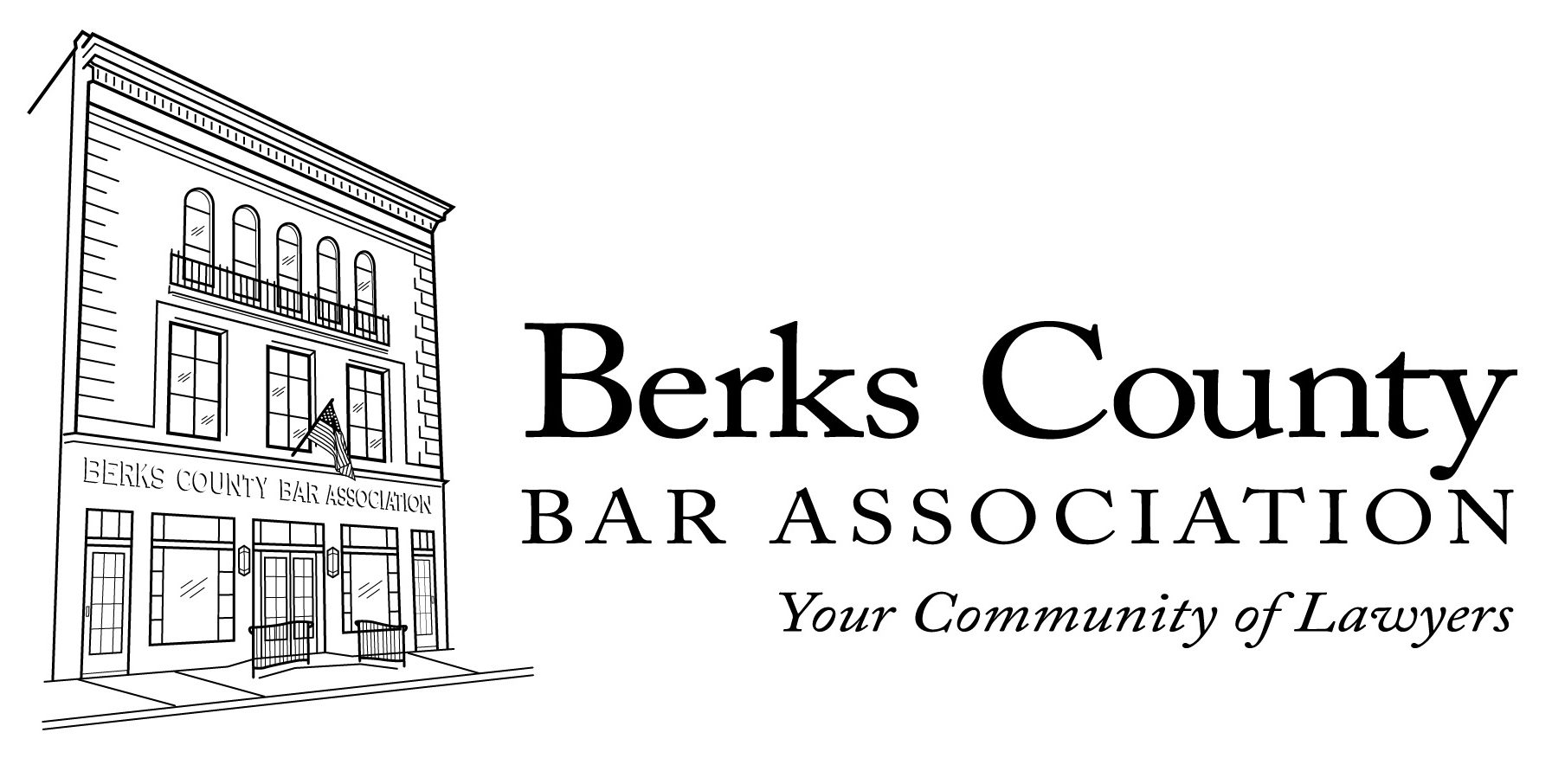Our History
Here at the law firm of Mogel, Speidel, Bobb & Kershner, we are proud of our rich history. Our founder is George F. Baer, who was the president of Reading Company. We are proud to have roots that reach as far back as 1868 and of our legacy for providing exceptional, trustworthy legal services for our clients. Our areas of expertise include estate planning, family law, personal injury, real estate and zoning law, and much more.
Brief History of the Berks County Legal Community
The County of Berks was established in 1752. Justices of the Peace were commissioned by the governor, and Conrad Weiser was one of the first serving from 1752-1760. A Lawyers Register was maintained from 1752-1776, and the earliest recordings of Officers of Berks County, attorneys at law, were made in 1769. The Berks County Bar Association was formed in 1867.
In the late 1800s and early 1900s, Reading’s population had reached 150,000. This was the era of railway expansion, Robber Barons, J.P. Morgan, and President Teddy Roosevelt. Cable cars ran along Penn Avenue and 5th Street, Neversink Mountain was a popular destination, and business was booming in the exciting City of Reading.
George F. Baer and Baer, Snyder & Zieber
Mr. Baer served as local counsel for many corporations, including the Philadelphia and Reading Railway Company from 1872 until 1901. In addition to his large legal practice, he was the driving force in the creation of a number of important business enterprises. Mr. Baer established the Reading Paper Mills in 1886, and he helped to establish Penn National Bank (1883), the Reading Hospital (1884), the Reading Trust Company (1887), the Wyomissing Club (1890), the Reading Free Library (1898), and the Berkshire Country Club (1899). He remained active in the management of most of these organizations, serving as President of the Reading Paper Mills and Temple Iron Company as well as Vice President of Seyfert, McManus & Company. He was also was the first President of the Reading Iron Company, which was the largest industrial enterprise in Berks County in 1923, and much of its later success was attributed to him. In 1901, Mr. Baer assumed his most famous role and became President of the Reading Company when his close friend, J.P. Morgan, assumed control of the company.
Mr. Baer continued to be involved in the Reading community. He served as President of the Board of Park Commissioners and was on the Board of Trustees for both Charles Evans Cemetery and Franklin & Marshall College.
The Reading Railroad
The Reading Railroad is widely recognized as one of the properties in the game of Monopoly. Even so, most people don’t realize that it was one of the greatest coal haulers in the east and one of the wealthiest companies in the world in the late 1800s and early 1900s.
The Philadelphia and Reading Railway Company was established in 1833. Commonly referred to as the “P&R,” it became one of America’s first conglomerates. It formed subsidiary P&R Coal and Iron Company, and in the 1890s created the Reading Company. In 1902, J.P. Morgan assumed control of the company, and he appointed his close friend, George F. Baer, as President of the Reading Company. In 1924, P&R Coal and Iron became independent, and the Reading Company became the railroad’s operating name. Generally thought of as the Reading Lines, the Reading Company operated until it filed for bankruptcy in 1971. Conrail took over in 1976, and the current Norfolk Southern Corporation based in Virginia is its successor. It’s interesting to note that Reading Anthracite was a spin-off of the P&R Coal and Iron Company, and it still exists today as one of the largest anthracite-mining companies in the world.
1833
Snyder, Zieber & Snyder
When Mr. Baer became President of the Reading Company, Mr. Snyder assumed the lead in the firm. Snyder & Zieber was formed in 1902, and Jefferson’s son, Thomas Lager Snyder, later joined the office to form Snyder, Zieber & Snyder.
The law firm continued to represent a number of large corporations as well as handle estate planning for their founding families. Clients included the Reading Company, Reading Trust Company, Thun Investment Company, Provident Savings & Loan, Nolde & Horst Hosiery, Reading Hardware Company, and Ludens. Many of these firms are historically tied to the now well-known companies such as Wachovia Bank, Vanity Fair, and Arrow International.
1902
1965
Snyder, Balmer & Kershner and Balmer, Kershner, Mogel & Speidel
As the firm evolved, it continued to represent local entities such as the Reading Transportation Company and Albright College. The firm attorneys also played a large role in establishing local agencies to promote development in the Reading area, including the Greater Berks Development Fund and the Berks County Industrial Development Authority. Through the mid-1960s, the firm maintained a general legal practice, and its client mix shifted with the acquisition and relocation of many Reading-founded corporations. Sought out for his advice on critical legal and community issues, George Balmer was known for his fine reputation and strong work ethic. George Kershner created a new form of will that enhanced the estate planning process in Berks County.
Having outgrown their original office space in the Baer Building, the law offices relocated to 50 N. 5th Street, the Bank of Pennsylvania building, in 1965. It’s interesting to note that in the early 1960s, there was a shift in the legal community towards focusing on particular areas of the law. For example, prior to that time, specializations in pension law and environmental law did not exist.
Mogel, Speidel, Bobb, and Kershner
The law firm of Mogel, Speidel, Bobb and Kershner has been incorporated since 1985. Founding shareholders were Carl Mogel, Harry Speidel, Donald Bobb, and Edwin Kershner. Edwin Kershner worked with his father, George Kershner, just as Lager Snyder did with his father, Jefferson Snyder. Current senior shareholder Frederick Mogel continues the family tradition, having worked with his father, Carl Mogel.
Maintaining a general practice, the firm offers a broad range of services with highly regarded expertise. With 14 attorneys and their supporting staff, the firm retains an AV rating from Martindale-Hubbell, which is the highest possible rating for law firms in the United States. Since 1980, the main office has been located in the former Nolan home at 520 Walnut Street, Reading, PA. Although renovated for business purposes, the building’s charm and architectural integrity remain.
1985
The Nolan Mansion
1980
Read More
William Nolan, Sr. was born in Queen’s County, Ireland, in 1840. His parents, James and Annie (Bennett) Nolan, brought their family to New York and later relocated to Reading. One of seven children, William Nolan, Sr. started his career as a stonecutter under master mason Henry Jacobs with the Philadelphia & Reading Railway Company. His success led him to organize his own firm, William Nolan & Co., which later became Nolan & Brothers and then Nolan Construction Company. William, Sr. worked with his brothers, Charles and James, and some of the finest roads, viaducts, bridges, and arches in New York City, Port Jervis, Fairmount Park in Philadelphia, and along the Schuylkill and Susquehanna Rivers were designed and constructed by Nolan & Brothers – all great structures that made possible the great transportation industries along the Atlantic seaboard.
In addition to being involved with the family business, James was an attorney and became president of numerous companies including the Reading Trust Company, Reading Electric Light and Power Company, and Reading Academy of Music. He also served on the board of trustees of St. Joseph’s Hospital and was a director for Farmers National Bank. He and his wife, Kate Stewart, had three children, and their son, James Bennett Nolan, was a member of the Berks County Bar Association.
William Nolan, Sr. and his wife, Katherine McDonough, had nine children, and sons James, Charles J., Thomas G., Edward C., Bernard J. and William, Jr. all continued the family business. Prior to living at 520 Walnut, early city directories show the extended Nolan family living at 522 Walnut Street. This building was torn down in 1990, and the location is now the law firm’s parking lot. William Nolan, Sr. passed away at the family home on February 3, 1903.
The renovation of the Nolan family home retained many of the fine architectural details that Nolan & Brothers was known for in their work. These include the domed stained glass window at the top of the center stairwell; three fireplaces; and hand-carved wood work on the staircase banisters, windows, and doors. Photographs of the home’s interior in the early 1900s are displayed in the reception area.
James Bennett Nolan, the grandson of the Nolan Mansion’s original owner, was born on December 1, 1877. He studied law and was admitted to the Berks County Bar on November 18, 1901. James served in World War II, enlisting on March 8, 1943 as a Lieutenant Commander in the US Coast Guard Reserve. Promoted to Commander on September 15, 1945, he was awarded a Bronze Star and discharged on October 1, 1945.
Founders & Namesakes
George F. Baer
Jefferson Snyder
Philip S. Zieber
Thomas Lager Snyder
George Balmer
George A. Kershner
Carl F. Mogel
Harry W. Speidel
Donald K. Bobb
Edwin H. Kershner
He is a past president of the Berks County Bar Association. Mr. Kershner maintained a Womelsdorf office on Wednesday afternoons and evenings, and he practiced primarily in the areas of estate and trust administration and planning, business, and real estate law. Mr. Kershner was an AV-rated attorney and resides in Wyomissing.
We Put Our Rich History to Work For You
When you choose Mogel, Speidel, Bobb & Kershner as your legal team, you are gaining the advantages of selecting a firm with a rich history and reputation in the community to back you. For more information, or to set up an appointment, contact one of our offices today.



